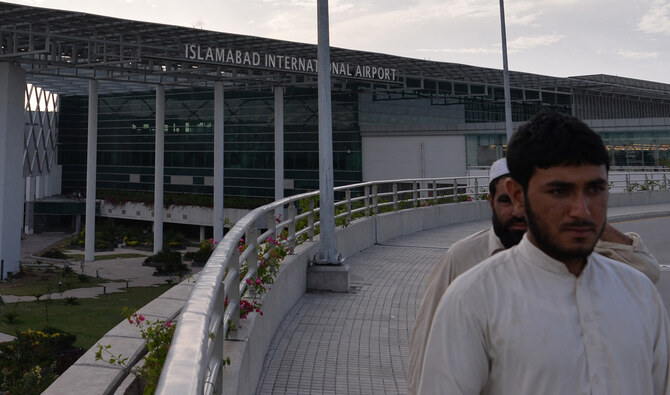DUBAI: With the Election Commission of Pakistan (ECP) launching the i-voting system on Friday, Pakistani expatriates in the UAE elicited a mixed response for the initiative.
While some who spoke to Arab News said they felt empowered to finally be a part of the country’s democratic process, others questioned the practical implementation of the project.
“Being Pakistani is part of our identity as an expatriate. Whatever is happening in Pakistan matters as much to us [here] as it does to Pakistanis living there. Not being able to vote alienates us from that part of our identity,” Naved Khan, a resident of Dubai for the past 20 years, said.
He added that it was an exercise in futility to debate about the political climate of the country when, at the end of the day, an expatriate had no say in who would eventually come to power. “Having these voting rights allows us to have a say in electing the party that we believe can effectively lead our country,” Khan, who is originally from Karachi, said.
The i-voting website contains video tutorials in English and Urdu and promises to help the more than 7.9 million Pakistanis living abroad to “cast their vote online from anywhere in the world using any Internet-connected device”.
The service, which is available until September 15, is only for citizens who are already registered voters in Pakistan. Documents such as the National Identity Cards for Overseas Pakistani and Machine Readable Passports are a must to register for the service. Once registered, users will receive a secret code — between October 10 and October 14 — that will be unique to each one of them.
The ECP had announced earlier that it will conduct by-elections on October 14 in 37 constituencies for both national and provincial assembly seats.
Rizwan Fancy, director of Public Relations in Pakistan Association Dubai, said that overseas Pakistanis were desperately waiting for this announcement. “It is a very positive move and was long overdue. It is the right of every Pakistani citizen to play their role for the development and progress of their homeland by voting [for] the right person,” he said.
Nasir Iqbal, a communication expert residing in the UAE, concurs. “Pakistanis living abroad have been seeking the right to vote for 25 years. It is a democratic achievement,” Iqbal, a resident of Islamabad, said.
He also commended the IT experts who developed the system and “demonstrated world-class skillsets of Pakistani IT experts. We hope the i-voting system will be seamless, hack-proof and without any political meddling”.
Mian Qasim, a Dubai-based businessman, said that the move would “invoke a sense of nationalism and pride to contribute toward nation building”, with Pakistanis living abroad no longer feeling neglected.
Other expatriates, however, chose to disagree.
A business management professional working for a private company in Dubai adds a caveat. “In the July elections, we were told the same thing but nothing happened. There will be lots of logistical and political challenges. I sincerely wish we could vote electronically but considering what’s happened in the past, I don’t think it is going to happen soon,” Mrs.Khan, who requested for anonymity, said.
M.K. (name withheld on request) is a resident of Multan and works as a cleaner in Dubai. He expressed skepticism for the project, too. “Most of the Pakistanis in the UAE are blue-collar workers who are not literate enough to cast their vote on the Internet. It will be useless for us. We also don’t have access to computers all the time. This exercise will be only for rich and educated people,” he said.
According to him, millions of people working outside the country won’t benefit from the i-voting system. “Instead, the Election Commission should formulize a method that could be easily applicable to people like us,” he said.

















